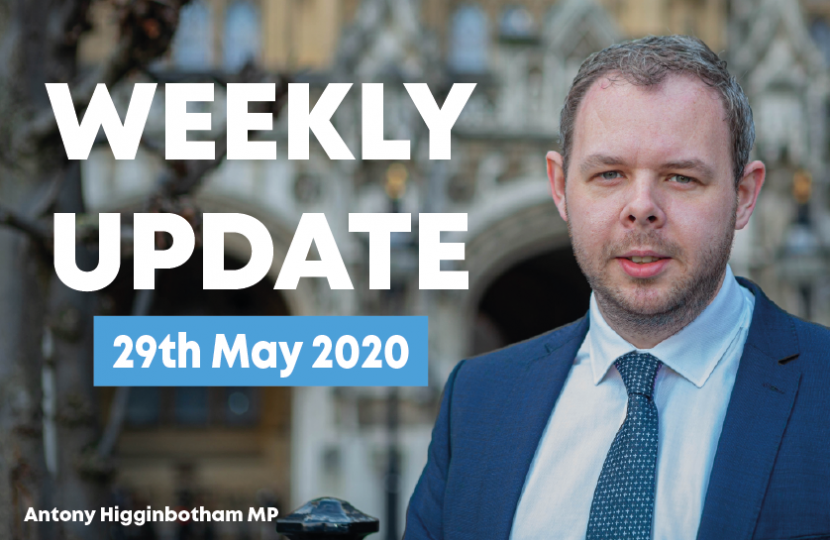
As anyone who has watched the daily briefings will have seen, we have now passed the peak of this virus across the country, including in the North West. With the curve flattened and the peak passed, we have started to see the number of new daily cases reduce. As a result, we can start to put in place the measures we need to adapt and keep the numbers of new cases low, whilst getting back to normality. And I think it is also worth reiterating, as I did in this column a few weeks ago, that most people who catch Covid-19 will get better in around a week. We saw this clearly when members of the Cabinet like Matt Hancock got ill. But our actions, to stay alert and limit the spread, are vital in ensuring that we protect those who are most vulnerable.
In a few weeks’ time, from 15 June, shops across Burnley and Padiham will start to re-open. Things may look different, with one-way systems like those in supermarkets, but life will be getting back to normal.
Like many during this period, I have not been able to attend my place of work, with MP’s instead conducting business through a hybrid, virtual Parliament. Last week, however, I voted for Parliament to return from the 2nd of June, to coincide with the lifting of some restrictions. It is only right that as your representative I lead by example and so I too will be returning to my primary place of work. And I do this not just because it is the right thing to do, but because we need to start to adapt to this new normal. The virtual Parliament had many benefits, but also many shortcomings. It did not allow for full and frank debate and scrutiny of Government.
As we adapt to this new normal though we must have the measures in place to keep us safe and contain the virus. That is why everyone, without exception, is now eligible for a Covid-19 test if they have symptoms. By harnessing the collective power of the public and private sectors we have increased capacity to 150,000. Anyone who displays symptoms should use the online booking system at NHS.uk/Coronavirus to book this or call 119. And new tests are becoming available, from symptomatic tests giving a result in 20 minutes to antibody tests.
With this increase in testing we can also be more intelligence-led on who needs to self-isolate. From yesterday (Thursday 28 May) a new Track and Trace system has been established, supported by 25,000 contact tracing staff and the capacity to trace the 10,000 contacts per day. To put this into context, the number of new daily cases the day before it went live was 2,013 giving ample capacity to track and trace the contacts of those who test positive for Covid-19. Through this system, anyone who tests positive to Covid-19 will be contacted by NHS Test and Trace to share details of their recent interactions, so those at risk can be contacted and told to self-isolate. In time, this will be supplemented by the mobile app currently being tested by the NHS.
The increase in testing and the ability to contact trace at scale is a gamechanger. It will give us the ability to see where hotspots are, localise restrictions, and allow the country to move forward. The next few weeks are going to be crucial - we must all stay alert but together we can slowly reopen and start on the journey of rebuilding our town.

